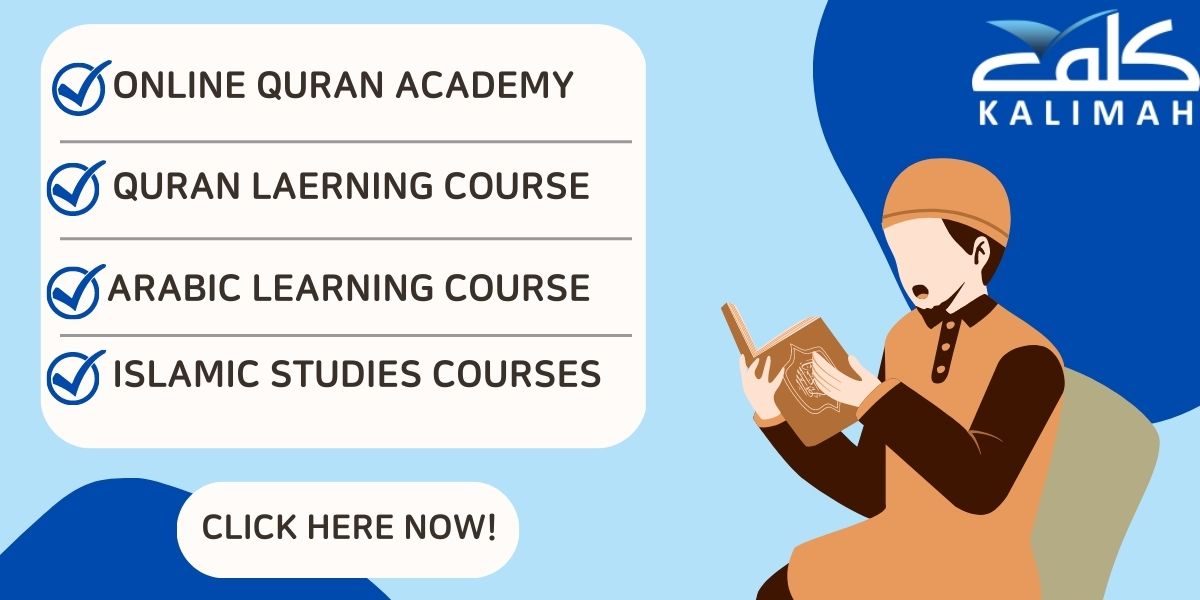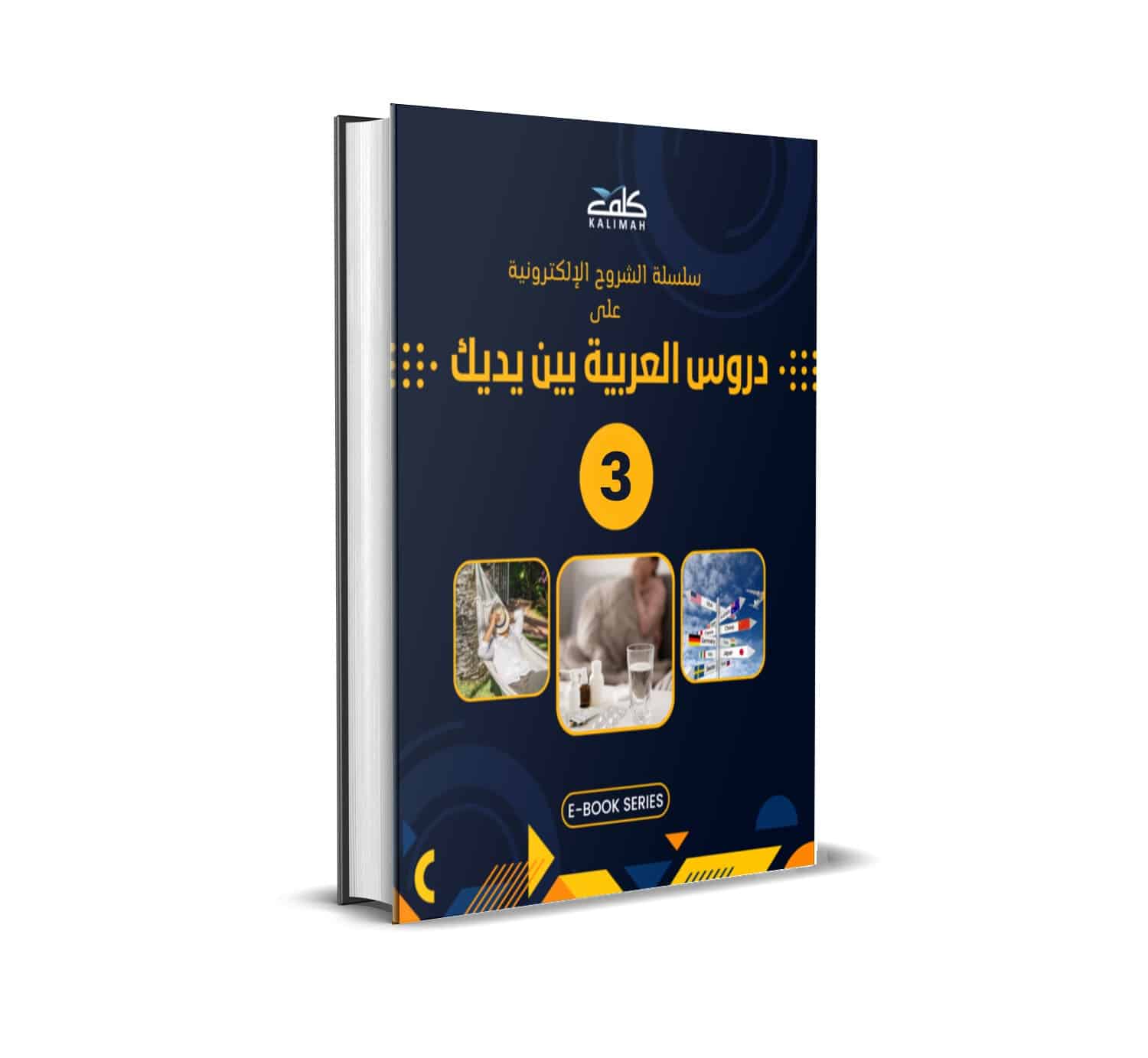Do you want to Learn Arabic Basics From Scratch? Learning Arabic basics from scratch involves starting with mastering the alphabet, common phrases, and essential vocabulary.
Begin with greetings, polite expressions, and daily terms to build a foundation for more complex language aspects.
Understanding basic grammar rules, such as the definite article “ال,” verb conjugations, and sentence structures, is crucial.
Understanding the Arabic script, written right to left, is cursive with letters changing forms based on their position in a word.
While Arabic might seem challenging due to its unique script and sounds, consistent practice with native speakers, whether through online resources or immersive experiences, can significantly enhance your learning process.
If you’re learning Arabic, it’s important to learn what to start with and it’s always the alphabet.
Then you need the basics like questions, phrases for meeting and greeting and being polite, days of the week, and numbers.
The following can help you practice some key terms.
What Are The Basics Of Arabic?
In learning The Arabic language, the basics of Arabic include slowly becoming proficient in common phrases such as greetings, saying “goodbye,” “thank you,” “please,” “how are you?,” “my name is…,” “how do I…,” “where is…” and so on.

Learning the basic, most common phrases first will help make more complicated phrases and vocabulary words easier.
It is also useful if you’re in a time crunch to learn a language and for instance, if you’re going to a foreign country on a business trip, you should be able to know the basics well enough to get you by.
While you’re in that country, you can get more practice with hearing additional words and phrases and this is true for learning the Arabic language.
In advanced levels you will learn morphology and word origins – verbs and conjugation – literature and rhetoric – exposure to different styles of Writing – idiomatic expressions – literary styles and beautification of speech Poetry and understanding Arabic poetry and culture.
How To Learn Basic Arabic?
The basics of Arabic really show how beautiful this language is. But, learning it can seem daunting. The trick is to view Arabic as any other language. It’s a form of communication.
So, if you learn the most common words and phrases, you’ll be able to communicate with Arabic native speakers.
It is very important to learn and be guided by specialized teachers who are native speakers of the language. This will save time and effort and you will end up sounding like a native speaker.
Learn Arabic From Scratch

We will be mainly focusing on basic Arabic words, greetings, expressions, and questions. As you probably know, what would be the first thing you learn in a new language?
The hellos, goodbyes, thank you, and so on. We’ve compiled a list of common words in Arabic and short Arabic phrases that would get you started in learning.
Alphabet is Written from right to left and comprises 28 letters.
The letters include: أ ب ت ث ج ح خ د ذ ر ز س ش ص ض ط ظ ع غ ف ق ك ل م ن ه و ي
Almost all the letters in an Arabic word are joined together like handwriting and some letters can’t join because of their shape, but we’ll
All the letters in the alphabet are consonants Vowels are separate marks that go on top or underneath these letters.
Read more about: do you have to learn arabic to be Muslim?
Learn The Basic Arabic Phrases (Common Phrases)
Here are the Basic Arabic Common Phrases that you can need as a beginner:

| English Phrase | Arabic Phrase | Pronunciation |
| Peace be upon you | السلام عليكم | As salaam alaikum |
| “God willing” | ان شاء الله | Insha-Allah |
| Hello | مرحبا | Marhaba |
| Goodbye | وداعاً or إلى اللقاء | Wada’an or Ila al-liqaa’ |
| Good morning | صباح الخير | Sabah al-khayr |
| Good evening | مساء الخير | Masa’ al-khayr |
| Thank you | شكراً | Shukran |
| Yes | نعم | Na’am |
| No | لا | La |
| Please | من فضلك | Min fadlik |
| What is your name? | ما اسمك؟ | Ma ismuka/ismuki? |
| My name is ______. | اسمي هو ______ | Esmi huwa ______ |
| Where are you from? | من أين أنت؟ | Min ayna anta/anti? |
| How are you? | كيف حالك؟ | Kayfa halak/halik? |
| You’re welcome | لا شكر على واجب | La shukra ala wajib |
| I’m sorry | انا اسف | Ana asif |
| I don’t know | لا أعرف | La aa-ref |
| Nice to meet you | سعيد بلقائك | Saeed Beliqa’ak |
| I’m fine | انا جيد | Ana jayyed |
| You’re welcome | عفوا | Afwan |
| Where is the bathroom? | أين الحمام؟ | Ayna al-hammam |
| Help! | مساعدة! | Mosa’adah! |
| I don’t speak Arabic | انا لا اتكلم العربية | Ana la atakallamu al-arabiyyah |
| I’m sorry, how much does this cost? | آسف، كم تكلفة هذا؟ | Asif, kam taklifat hadha? |
| Do you speak another language? | هل تتكلم لغة أخرى؟ | Hal tatakallam lughatan ukhra? |
| Where is this street located? | أين يقع هذا الشارع؟ | Ayn yaq’ hadha al-shari’? |
| No problem | لا مشكلة | La mushkila |
| I love it! | أنا أحبه! | Ana uhibbu! |
| See you soon! | أراك قريبًا | Arak qariban! |
| How old are you? | كم عمرك؟ | Kam umruk? |
| Don’t worry! | لا تقلق! | La taqlaq! |
| Can you help me? | هل تستطيع مساعدتي؟ | Hal tastatee’a musa’adati? |
Learn Basic Arabic Words (Common Words)

| English Word | Arabic Word | Pronunciation |
| Here | هنا | Huna |
| There | هناك | Hunak |
| Day | يوم | Yawm |
| Place | مكان | Makan |
| School | مدرسة | Madrassa |
| Shop | متجر | Matjar |
| Work | عمل | Aamal |
| Bathroom | حمام | Hamam |
| City | مدينة | Madina |
| Country | دولة | Dawla |
| Room | غرفة | Ghurfa |
| Mosque | مسجد | Masjid |
| Morocco | مغرب | Maghreb |
| Airport | مطار | Matar |
| Week | أسبوع | Usboue |
| Month | شهر | Cha-Hr |
| Year | سنة | Sana |
| Today | اليوم | Al Yawm |
| Yesterday | امس | Ams |
| Tomorrow | غدا | Ghadan |
| Hour | ساعة | Sa’aa |
| Minute | دقيقة | Daqiqa |
| Time | زمن | Zaman |
| Before | قبل | Qabl |
| After | بعد | Ba’aad |
| Now | الان | Al’aan |
| Thing | شيء | Chay’a |
| Nothing | لا شيء | La chay’a |
| House | منزل | Manzil |
| Car | سيارة | Sayyara |
| Words | كلمات | Kalimat |
| Language | لغة | Logha |
| Water | ماء | Ma-aa |
| Movie | فيلم | Film |
| Food | أكل | Akl |
| Tea | شاي | Chai |
| Phone | هاتف | Hatif |
| Woman | امرأة | Imra-aa |
| Man | رجل | Rajul |
| Girl | بنت | Bint |
| Boy | ولد | Walad |
| Friend | صديق | Sadik |
| Person | شخص | Chakhs |
| Husband | زوج | Zawj |
| Wife | زوجة | Zawja |
| Family | عائلة | A-ila |
| Name | اسم | Ism |
What are the Arabic Numbers from 1-10?
1: واحد (Waahid)
2: اثنان (Ethnaan)
3: ثلاثة (Thalatha)
4: أربعة (Arba’a)
5: خمسة (Khamsa)
6: ستة (seta)
7: سبعة (saba’a)
8: ثمانية (thamania)
9: تسعة (tesa’a)
10: عشرة (ashra)
Learn Basic Arabic Grammar:

If you get the main rules of Arabic grammar, it can be your key to understanding the nature of this language and gradually grasping it and actually enjoying it.
So, here are some grammar rules to remember in the Arabic language.
1. The Definite Article Of The Arabic Language Is (ال) Pronounced (Al)
It’s the equivalent of “The” in the English language. Unlike other languages, the Arabic definite article is the same for singular nouns, plural,dual, masculine or feminine.
Examples:
The man الرَّجُل
The woman المَرْأة
The engineers المُهَنْدِسون
The two boys الوَلَدان
The book الكتاب
2. The Words’ Endings Can Help You To Identify Its Gender
Most of the feminine words have three specific endings which can help you to identify them easily.
Table طاوِلة ة / Laila “name” لَيْلَى ى Sky سَماء اء
Keep in mind that there are feminine words that don’t end with these letters and there are masculine words that end with them but they’re fewer.
3. Dual In Arabic
Beside singular and plural, the Arabic language has a dual form and you create it by adding “ان” or “يْن” to the masculine singular word and “تان” or “تَيْن” to the feminine singular word. Actually, the “ت” is added in the place of the “ة”.
Examples:
One man \ Two men رَجُلان \ رَجُلَيْن
One woman \ Two women امْرأتان \ امْرأتَيْن
4. Subject Pronouns Are Optional
Since the verb is already conjugated with a definite pronoun so, it’s clear and understandable which person we’re referring to. Examples:
(we) went to the park. ذهبنا إلى الحديقة. (نحن)
Do you (feminine) study arabic? هل تدرسينَ اللغة العربية؟ (أنتِ)
(they) will travel tomorrow. سيسافرون غدًا. (هُم)
5. There Are No Silent Letters In Arabic
which means that you pronounce the letters as they are in the word, for example the word audio دَرْسٌ you pronounce all the three letters of the word.
6. The Future Tense Doesn’t Have Different Conjugations
Instead, we use the same conjugations of the present adding just one letter “س” or one word “سَوْفَ” to the beginning of the verb.
Examples:
I will travel next month. سَأسافر الشَّهْر القادِم.
We will meet after the exams. سَوْفَ نتقابل بعد الامتحانات.
7. The Verb At The Beginning Of The Sentence Is Always Singular
regardless of the number or gender of the subject in the case of a verbal sentence.
The boy helped his father. Singular subject ساعَدَ الولدُ أباه.
The two boys helped their father. Masculine dual ساعَدَ الولدان أباهما.
The girls helped their father. Feminine plural ساعدت البنات أباهُنَّ.
8. Verb To Be Does Not Appear At All In The Present Time Frame In The Arabic Language
English sentences that are expressed using “verb to be” are often translated into nominal sentences in Arabic, e.g. “I am a student” is translated into (أنا طالب); and “she is young” is translated into (هي صغيرة).
When talking about the past or the future, the verb to be must appear in the sentence, e.g. “I was a student” is translated into (كنت طالبًا); and “she was young” is translated into (كانت صغيرة).
9. Arabic Words Are Connected
In Arabic, there’s a system called “roots”, the Arabic root refers to a three or four-consonant base word that represents a core meaning or concept.
Most roots in Arabic are made up of three consonants. A large number of words can be derived from each root, which makes it much easier for learners to memorize and conclude words.
Examples:
ك – ت – ب
He wrote كَتَبَ
He writes يَكْتُبُ
Writing كِتابة
Learn How To Read Arabic
The hardest thing about reading Arabic is to remember that some letters change their form in different positions in a word.
This is what a letter looks at the beginning, middle, and end of a word.
The exciting thing is that this letter is pronounced the same way and seems confusing.
No need to panic! To get used to the Arabic writing system and pronunciation, you can listen to Arabic podcasts, and the best books to learn Arabic are also available online.
You can also participate in online courses with native teachers and arabic speakers.
Learn How To Write Arabic:
The Arabic script is written from right to left in a cursive style and this means that almost all the letters are connected and flow into each other.
Although there are no upper or lowercase letters, the four shapes of letters (depending on their position in the word) create this flow.
Here are some helpful tips to help you start writing Arabic properly:
Try not to lift the pen when writing — smoothly move it from one letter to another without interruption.
Practice a lot — control moves of your fingertips and write each letter over and over again, paying attention to the tiniest details.
Practice writing from right to left to develop new muscle memory.
Sounds challenging? Once you get the hang of Arabic writing, you’ll see how easy it is!
Learn How To Speak Arabic:
Communication is the main reason why we’re actually learning a language.
Don’t be afraid to speak a foreign language, even if your grammar isn’t perfect and you know just a few basic words.
Just let your thoughts flow freely without thinking about mistakes.
It seems hard to find a conversational partner if you don’t have an Arabic-speaking friend.
But because of modern technology, you don’t have to go abroad to speak with a native. For instance, you can find an online tutor who will help you start speaking Arabic with confidence and give you feedback on your performance.
The Most Important And Common Questions

Many questions come to your mind now about what is the first step for learning the Arabic language, what is the sufficient period, and is the Arabic language difficult to learn. and other questions related to our topic under research.
Below we will review the most frequently asked questions.
What Should I Learn First In Arabic?
Learning the Arabic alphabet is crucial to start by familiarizing yourself with the letters, their forms, and how they are written in different positions.
Learning common greetings and basic phrases will help you start conversations and interact with others in Arabic.
Understanding numbers is fundamental in any language and learning how to count in Arabic and practicing using numbers in various contexts.
Begin building your vocabulary by learning common words and phrases related to everyday topics such as food, family, colors, and so on.
Arabic grammar can be complex, but starting with basic grammar rules such as word order, noun-adjective agreement, and verb conjugation can provide a solid foundation for further learning.
Practice listening to Arabic spoken by native speakers to improve your listening comprehension and engage in speaking exercises to practice your pronunciation and communication skills.
Regularly practice writing in Arabic to reinforce your understanding of the alphabet and improve your handwriting.
Is Arabic A Hard Language To Learn?
No, Arabic isn’t hard to learn. And it’s definitely not impossible. Millions of learners chose Arabic as a second language.
Thanks to its widespread use, there are a lot of resources and materials you can use to reach fluency.
Arabic has a completely different writing system than English and it also has a few different sounds than what English speakers are used to.
But, none of these make Arabic an impossible language to learn. With enough time, effort, and motivation, you can learn Arabic easily. Plus, getting the basics of Arabic down is a very quick process.
How Long Does It Take To Learn The Arabic Language?
There’s no clear-cut answer to how long it takes to learn a language. That’s because language learning is a process that never really ends. But, there’s definitely a point where you reach fluency.
However, how fast that time comes depends on the language, the learner, and the resources you use.
But, if you want a number, you can have the US Foreign Service Institute (FSI) estimate.
This calculation takes the difficulty of the language compared to English. Arabic is a Category V language according to the FSI. Which means you’d need 2200 hours or 88 weeks of study to master Arabic fluency.
However, this estimate doesn’t take into account everything. It doesn’t know your motivation, enthusiasm, and using the right language learning method. And once you know all the basics of Arabic, building on that knowledge is even faster. So, please, take these numbers with a grain of salt.
Is the Arabic Alphabet Complicated?
Is the English alphabet complicated? For someone who grew up with the Arabic alphabet alone, probably.
In other words, the Arabic alphabet isn’t complicated. It’s the natural way to write the language. But, as a language learner, mastering the Arabic alphabet is the first step of your journey.
The fastest way to know how to learn Arabic is the Immersion Approach and if you want to become fluent in a foreign language as quickly as possible, then the optimal learning process should include immersion as it is one of the most efficient learning methods.
This means spending lots of time speaking the language and making conversation with native speakers online or offline in an Arabic country.
Immersion can be done online or offline. Offline methods include attending classes in a language school, reading books written in the original
language, watching TV shows/movies with Arabic subtitles, listening to music, etc.
Online methods include chatting with friends who speak the language, taking practice tests, and enrolling in an online Arabic class.
How Much Do Arabic Lessons For Beginners Cost?
There is not any international price for Arabic lessons for beginners and the price varies depending on the country the teacher lives in, how experienced the teacher is, etc.
On average, it is estimated that it can cost you from 10 to 40 U.S. dollars per hour to have a private lesson online.
Ready To Start Your Language Journey?

Learn Arabic online at the Kalimah center, where you can have much practice with native Arabic tutors.
You’ll get a personalized study plan based on your level and study goals.
To get started, choose a preferred tutor from a vast database of experts and schedule your trial lesson at a time that suits you the most.
schedule your trial lesson right now
Unlock Your Potential in Arabic and Quran with Kalimah Center!
Ready to deepen your connection with the Quran and enhance your understanding of Arabic? Join Kalimah Center today and embark on a transformative journey of learning and growth! Our professional, handpicked Online Arabic and Quran Tutors are dedicated to helping you master these essential skills with ease and expertise.
📚 Explore Our Courses:
Online Arabic Course: Tailored to your level, our comprehensive Arabic program includes 16 teaching levels and 400+ hours of personalized sessions.
Online Quran With Tajweed Course: Perfect for non-Arabic speakers, our course spans 13 levels and equips you with Tajweed mastery from beginner to advanced.
Online Arabic Course For Kids: Nurture your child’s love for Arabic with our engaging and structured program, available in 24 levels for primary, intermediate, and secondary stages.
🚀 Start Your Free Trial Today! 🚀
Don’t miss out on this life-changing opportunity to deepen your faith and knowledge. Sign up now for your free trial and take the first step towards becoming a better practicing Muslim with Kalimah Center!
Conclusion
After reviewing some basics of the Arabic language, including common sentences, words, and grammar.
You are just at the beginning of your journey and there are lots of challenges ahead, so be a patient yet active learner.
Mastering the language may take years of study, but gaining speaking skills can come much quicker if you dedicate yourself to practice.
If a trip is out of the realm of possibility at the moment, surround yourself with anything and everything Arabic in the comfort of your own home.
You can watch shows, listen to songs, learn more about Arabic culture, read and even talk to yourself just to help repeat what you’ve learned so far.
If you’re interested in more ways to immerse yourself in a language we have the best way for you!















